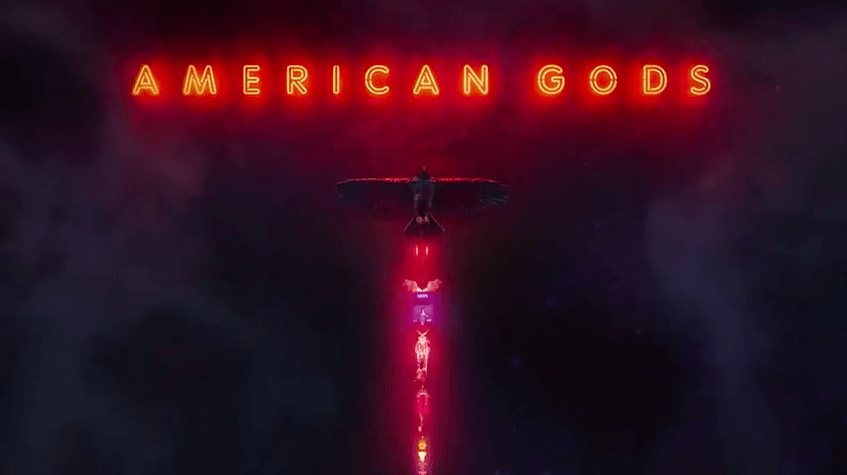Neil Gaiman’s equally visceral and intellectual novel, remade in eight, hour-long HBO episodes, is a dazzling on-screen delight for believers and non-believers alike. The formula: a rich amalgamation of worldwide mythologies, a cast with the likes of Ian McShane (Blackbeard from Pirates of the Caribbean: On Stranger Tides), Emily Browning (Violet Baudelaire from A Series of Unfortunate Events), and Pablo Schreiber (Mendez from Orange is the New Black), coupled with contemporary cinematography encapsulating the barren state of human civilization.
The narrative thrusts viewers into the incarcerated life of Shadow Moon, a prisoner on the verge of freedom, awaiting to be reunited with his wife, Laura Moon. A simple premise, until elements of magical realism (as if projected to life by Haruki Murakami himself) begin to consume Shadow’s life into a plunging sequence of despair. An inscrutable figure, going by the name of Mr. Wednesday, charmingly—though not at first—hires Shadow for his services to aid him in his covert operations. While the dichotomy of life and death are explored in excruciating detail, both in a personally taxing way for Shadow, and in grandiose social commentary in general, it isn’t at the heart of the programme. The most fundamental essence of such story-telling is in its ability to scrutinise external market-forces of technology, media, and ceaseless industrialization. In a highly anticipated war, subtly mentioned throughout, the diminishing, though historical potency of the Old Gods is being severely challenged by the rise of societal preoccupation with the New Gods. The culmination of this polarity, exercised through poignant dialogue and bright-red bloodshed, is flaunted marvellously in the season finale.
At times, American Gods seems to transcend the very nature of its content and embodies glimpses of Django Unchained and Game of Thrones, two mega-blockbuster creations. It provokes discourse even when it shouldn’t, because there is far too much ground to cover when one taps into the canvas of the omniscient and the supernatural. And even if there’s no revelatory insights to be gained, it’s at least a very compelling and deliciously dark tale of fables, theology, and cyberpunk realities.
Varun Madan
Image: Slashfilm

